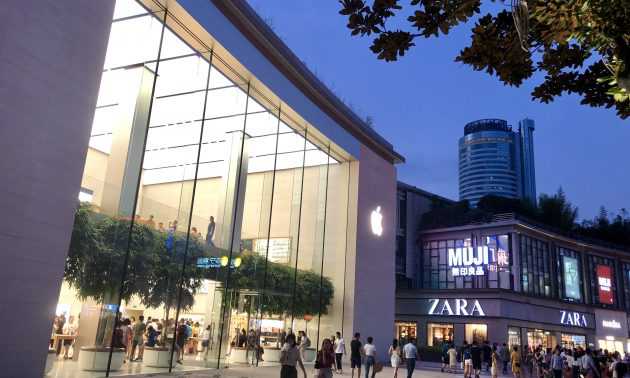Consumers closing their ears to calls for an iPhones boycott
09 September, 2018

Communist Party mouthpiece the People’s Daily and its sister tabloid Global Times have been giving dark warnings that the protracted trade row between China and the US could dampen enthusiasm for Apple gadgets as the American firm launches its latest product range.
But it seems that Chinese consumers aren’t listening. With buyers taking a pragmatic stance toward calls for a boycott of American goods, sales of iPhones have been as strong as ever; on the contrary, consumers seem more interested in getting hold of the newest models.
Apple will unveil its next-generation iPhones, sporting bigger screens and faster processors, at a showpiece event on Wednesday at the Steve Jobs Theater in California’s Apple Park, alongside updated versions of the iPad and Apple Watch.
Word of the event has spread quickly in China. At an Apple store in Beijing’s Chaoyang district, employees are already besieged by scrums of would-be buyers trying to pry out details about the new iPhone specifications and sales arrangements, according to the two papers.
China was the third-largest market for Apple in 2017 in terms of net sales, with a share of 20%, proving that its products still have a strong pull in China — but also underscoring the company’s vulnerability if the trade war triggers a collective consumer backlash.
China and the US are locked in a tit-for-tat spat over the imbalance in American trade accounts, with US President Donald Trump reportedly pushing advisors to impose tariffs on another US$200 billion worth of Chinese goods as early as next week.
Buyers at the opening of a new Apple Store in eastern Ningbo in 2017. Photo: Weibo
But for now, Apple CEO Tim Cook can take comfort that the Chinese affection for his gadgets remains unscathed. Despite dire predictions, there is no evidence that the trade war is deterring Chinese from buying US goods, or encouraging them to switch to domestic brands.
“I won’t give up on Apple’s products, and it has nothing to do with the trade war. It depends on whether [Apple] has further improved its customer experience,” said a Beijing-based consumer with the surname Yang, who works in the internet sector.
Yet some analysts have cautioned that Washington needs to dial down its trade salvo to insulate American products, as higher tariffs will push up the cost of components and probably affect exchange rates, weakening buyer sentiment in price-sensitive technology sectors. This is especially the case for iPhones, which come with hefty price tags.
There is also the risk that China might directly target electronic devices as part of retaliatory tariff measures if Trump is determined to turn the trade wrangle into a war of attrition.
State broadcaster China Central Television has stepped up the pressure by taking potshots at Apple. One article published online last month said that the firm had failed to block gambling advertisements and pornographic novels transmitted through its iMessage app.
Beijing has in the past used state-run media to whip up public sentiment against foreign firms, most recently targeting South Korean firms like Lotte Corp as part of an offensive against Seoul’s deployment of a US anti-missile system, targeted at North Korea.
